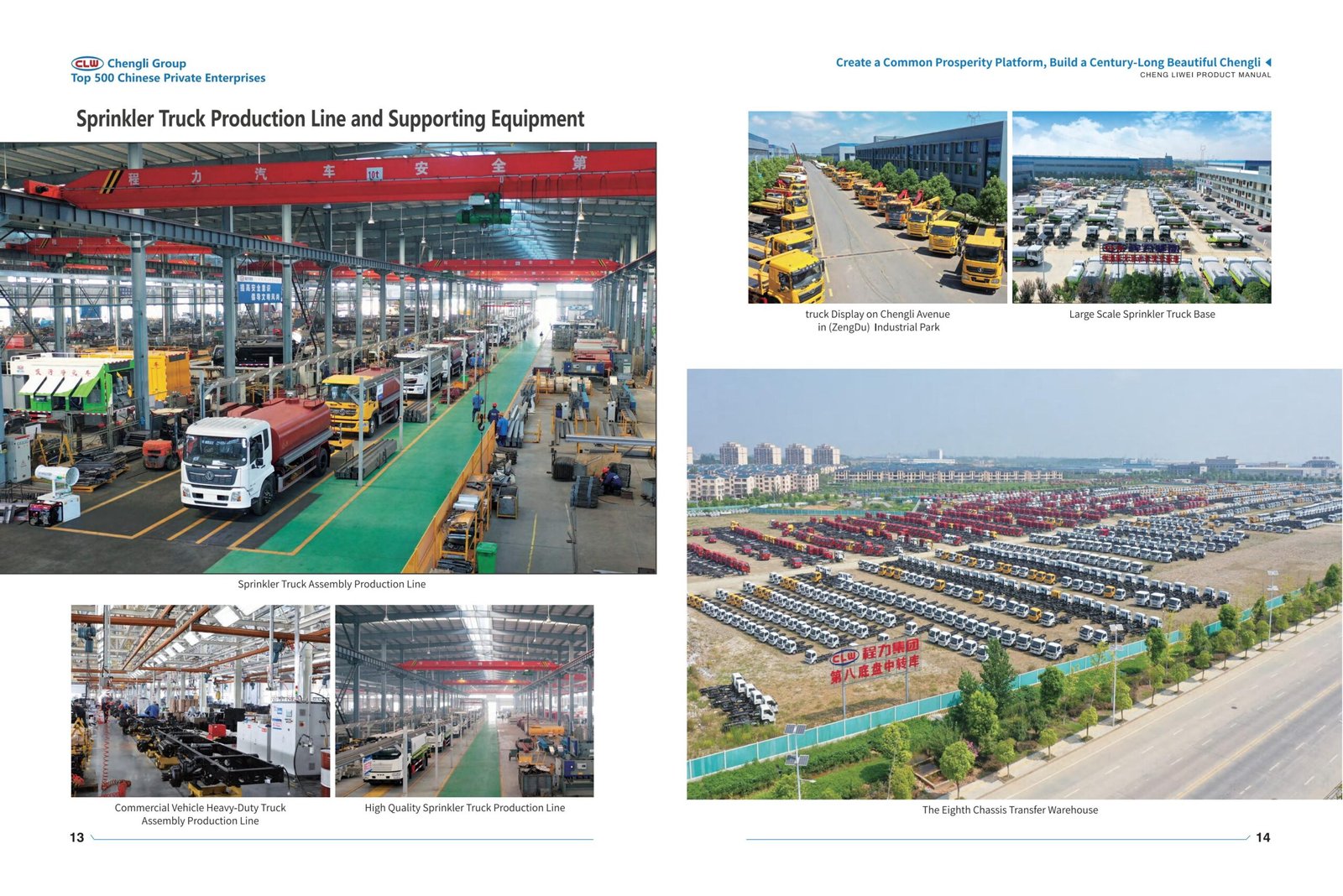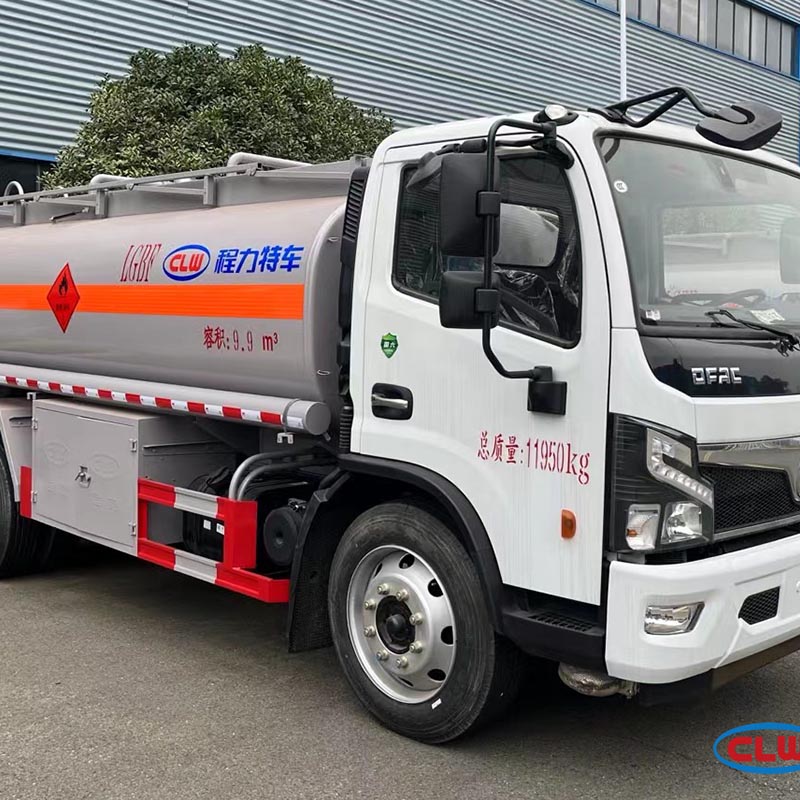Vita | Manager |
info@thespecialtrucks.com
Clw Inc.| No.1 special truck manufacturers in China | https://thespecialtrucks.com
Experience the Clw Inc. Difference - Visit Our State-of-the-Art Factory!
See firsthand our innovative manufacturing process and commitment to quality. Schedule your factory tour today:
info@thespecialtrucks.com
company catalogue

Understanding LPG Gas Tankers
LPG, or Liquefied Petroleum Gas, is a versatile fuel used for heating, cooking, and industrial processes. An LPG gas tanker is designed to transport and deliver this critical resource safely and efficiently. This guide is intended to help you discover everything you need to know about LPG gas tankers and how to choose one that best suits your requirements.
Key Components of an LPG Gas Tanker
An LPG gas tanker comprises several essential components. These include a specialized stainless steel or aluminum tank, safety valves, vent systems, and pressure regulators. Understanding these components can help you make informed decisions about the tanker you purchase. Learn more about LPG gas tanks here.
Choosing the Right Capacity for Your Needs
The capacity of an LPG gas tanker is crucial. Common capacities range from small to large, including 8 m3, 12 m3, and up to 25 m3. High-capacity tankers offer greater logistical efficiency, while smaller units might be ideal for urban and residential areas. Consider a 12.7m³ tank for robust performance.
Durability and Materials in LPG Tankers
Durability is paramount in choosing an LPG gas tanker. Stainless steel and aluminum are typical materials for these tanks due to their strength and resistance to corrosion. For instance, our High-Capacity Carbon Steel Refueling Truck  offers exceptional durability at competitive prices.
offers exceptional durability at competitive prices.
Types of Engines Used in LPG Gas Tankers
| Engine Type | Capacity (m³) | Power Output (HP) |
|---|---|---|
| Ford 3.0L V6 | 12.6 | 170 |
| Volvo D11 | 25.5 | 320 |
| Mercedes-Benz OM 471 | 8.5 | 130 |
The power output of an engine impacts its efficiency. A higher horsepower engine generally means better performance under demanding conditions. Explore the different engine options to see which fits your operational needs.
Safety Features to Consider
Safety is non-negotiable when dealing with flammable fuels. Modern LPG gas tankers come equipped with a range of safety features such as pressure relief valves, emergency shut-off devices, and leak detection systems. Ensure your tanker complies with local regulations and safety standards for optimal protection. Look at our range of safety-compliant tanks here.
Customization Options for Enhanced Operations
To optimize your LPG gas tanker for specific operations, consider customizations such as insulated tanks, remote monitoring systems, and specialized loading/unloading mechanisms. These enhancements ensure your tanker meets exact operational needs and maximizes your investment.
Cost of Purchasing an LPG Gas Tanker
Price varies depending on size, material, and additional features. Generally, a mid-sized tanker ranges from $50,000 to $100,000. Financing options and depreciation considerations also play significant roles in total cost. Assess your budget requirements carefully before making a final decision. Check out our pricing models here.
Maintenance and Longevity
Regular maintenance is essential for the longevity of your LPG gas tanker. This includes routine inspections, timely replacement of worn-out parts, and adherence to manufacturer guidelines. Investing in proper upkeep now could save you substantial costs down the line. Learn about long-lasting components here.
Inspection and Compliance Requirements
Your LPG gas tanker must undergo regular inspections and comply with stringent safety standards. This ensures it remains operational while prioritizing safety. Familiarize yourself with local regulations and obtain necessary certifications to avoid penalties and downtime. Ensure compliance with our certification processes.
LPG Gas Tanker Market Trends
The trend for LPG use continues to grow globally, driven by increased awareness of environmental benefits and cost-effectiveness. As demand surges, investing in an LPG gas tanker now positions you well for the future. Stay ahead of the curve with an efficient delivery solution tailored to your business needs.
Tips for Buying an Efficient LPG Gas Tanker
- Research: Conduct thorough research to identify reputable manufacturers and suppliers.
- Verify Certification: Confirm all safety standards and certifications.
- Consult Experts: Seek recommendations from industry experts to gain valuable insights.
- Test Drive: Where possible, arrange a test drive to evaluate performance firsthand.
Buying an LPG gas tanker requires careful consideration. By following these tips, you can secure a unit that enhances your operations and contributes positively to your business goals.
Customer Experiences and Reviews
“Our new Furika Refueling Truck has been a game changer for us, offering reliability and efficiency unmatched by previous models.”
Positive customer testimonials serve as validation of quality and service. Reading through such reviews can provide confidence in your purchase decision.
FAQs About LPG Gas Tankers
What types of LPG gas tankers are available? There are various sizes and types of LPG gas tankers available, catering to different needs. Typically, sizes range from 8 m³ to over 25 m³.
Can LPG gas tankers be customized? Yes, many features can be customized based on specific needs such as specialized fittings, insulation, and electronic systems.
How often should I inspect my LPG gas tanker? Regular inspections are recommended at least once every six months or as per manufacturer guidelines.
Are financing options available? Numerous financing options exist, including leasing and loans, to accommodate various budgets.
Wrapping Up: Making Your Purchase Count
Selecting an LPG gas tanker requires careful consideration of many factors. From capacity and materials to safety and customization options, make sure to weigh each aspect critically. With the right choice, your investment will pay off in terms of efficiency, safety, and long-term value. Contact the sales team today to learn more about our offerings, and take the next step toward optimizing your fleet!






